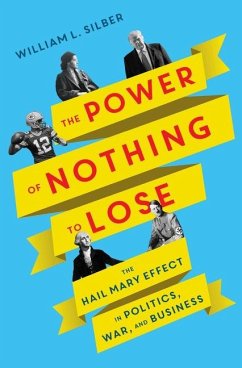
Going to Market
Women, Trade and Social Relations in Early Modern English Towns, c. 1550-1650
Versandkostenfrei!
Versandfertig in 6-10 Tagen
137,99 €
inkl. MwSt.
Weitere Ausgaben:

PAYBACK Punkte
69 °P sammeln!
Going to Market rethinks women's contributions to the early modern commercial economy. A number of previous studies have focused on whether or not the early modern period closed occupational opportunities for women. By attending to women's everyday business practices, and not merely to their position on the occupational ladder, this book shows that they could take advantage of new commercial opportunities and exercise a surprising degree of economic agency. This has implications for early modern gender relations and commercial culture alike. For the evidence analyzed here suggests that male ho...
Going to Market rethinks women's contributions to the early modern commercial economy. A number of previous studies have focused on whether or not the early modern period closed occupational opportunities for women. By attending to women's everyday business practices, and not merely to their position on the occupational ladder, this book shows that they could take advantage of new commercial opportunities and exercise a surprising degree of economic agency. This has implications for early modern gender relations and commercial culture alike. For the evidence analyzed here suggests that male householders and town authorities alike accepted the necessity of women's participation in the commercial economy, and that women's assertiveness in marketplace dealings suggests how little influence patriarchal prescriptions had over the way in which men and women did business. The book also illuminates England's departure from what we often think of as a traditional economic culture. Because women were usually in charge of provisioning the household, scholars have seen them as the most ardent supporters of an early-modern 'moral economy', which placed the interests of poor consumers over the efficiency of markets. But the hard-headed, hard-nosed tactics of market women that emerge in this book suggests that a profit-oriented commercial culture, far from being the preserve of wealthy merchants and landowners, permeated early modern communities. Through an investigation of a broad range of primary sources-including popular literature, criminal records, and civil litigation depositions-the study reconstructs how women did business and negotiated with male householders, authorities, customers, and competitors. This analysis of the records shows women able to leverage their commercial roles and social contacts to defend the economic interests of their households and their neighborhoods.













